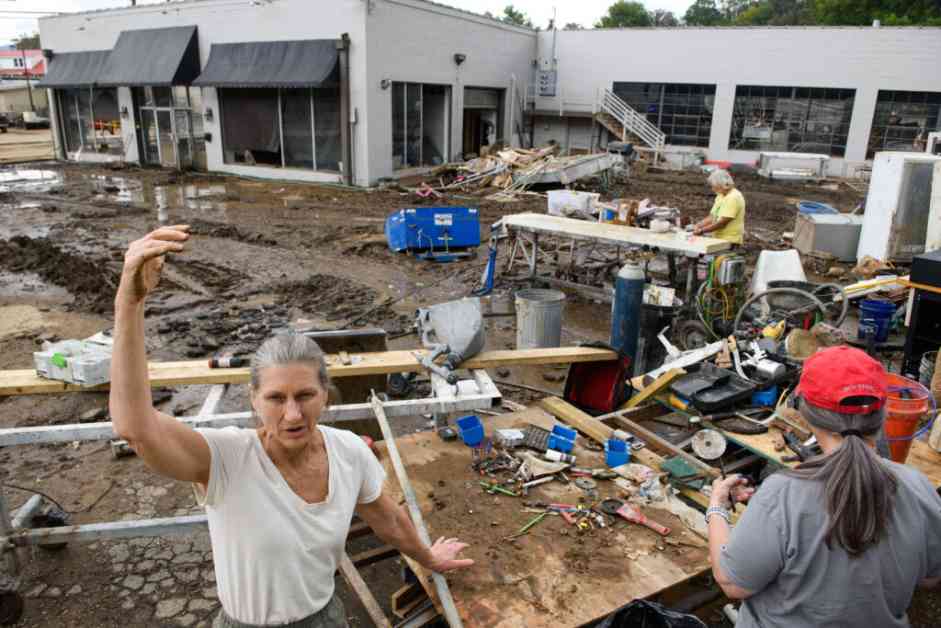Lack of Staffing Cuts Could Hinder Disaster Aid for N.C. Communities
Canton, N.C., a resilient mountain town of 4,400 people west of Asheville, has faced numerous challenges in recent years, from Tropical Storm Fred in 2021 to the closure of a 115-year-old paper mill in 2023. The town’s biggest blow came last September with Hurricane Helene, causing $60 billion in damages and claiming the lives of 100 individuals in the region.
These devastating events prompted the federal government to allocate over $1 billion in disaster recovery funds to western North Carolina. However, recent staffing cuts at the Department of Housing and Urban Development’s Office of Community Planning and Development have raised concerns about the timely distribution of these crucial funds. With an 84 percent reduction in staff, leaving just 150 employees to manage a nationwide disaster recovery program, the efficiency of aid delivery is in jeopardy.
Impact on Disaster Recovery Funds
The Office of Community Planning and Development plays a pivotal role in distributing Community Development Block Grants for disaster recovery efforts. These grants serve as a lifeline for individuals and families impacted by hurricanes, floods, wildfires, and other natural disasters. With climate change intensifying the frequency and severity of these events, the need for swift and effective aid distribution is more critical than ever.
Following Hurricanes Matthew and Florence, nearly a billion dollars in recovery grants were distributed to the N.C. Office of Recovery and Resiliency to support homeowners, renters, small businesses, and local governments in eastern North Carolina. While funding is secure through congressional appropriations, the reduction in staff could significantly delay the disbursement of these funds, prolonging the recovery process for those in need.
Challenges and Concerns
Local officials, like Canton Mayor Zeb Smathers, express apprehension about the impact of these staffing cuts on the residents of western North Carolina. While acknowledging the importance of fiscal responsibility, Mayor Smathers emphasizes the urgency of providing necessary resources and support to the affected communities. With $16 billion allocated for disaster recovery in North Carolina, including $1.4 billion for homeowner recovery in western North Carolina, the need for efficient aid distribution remains a top priority.
The city of Asheville also received a significant appropriation of $225 million in disaster recovery block grants, underscoring the essential role of HUD in facilitating recovery efforts. Lillian Govus, Buncombe County’s communications and public engagement director, highlights the critical partnership between federal and state agencies in executing disaster recovery plans effectively.
Amidst concerns about the lengthy approval process and potential delays due to reduced staffing, state officials are actively engaging with federal partners to expedite the release of these funds. Governor Josh Stein’s communications director, Kate Frauenfelder, emphasizes the importance of seamless collaboration to ensure uninterrupted funding for recovery initiatives.
While navigating budget constraints and logistical challenges, Senator Thom Tillis echoes the need for prudent spending while advocating for essential recovery services in western North Carolina. The state’s recovery efforts, spanning various sectors from housing to infrastructure, demand sustained support and resources for a comprehensive and enduring recovery process.
As residents and officials brace for a prolonged recovery journey, the resilient spirit of western North Carolina shines through. Mayor Smathers emphasizes the long-term commitment required for a complex recovery process, underscoring the region’s unique challenges and diverse needs. Despite the obstacles ahead, the collective determination to rebuild and restore these communities remains unwavering.
Journalist Lisa Sorg’s dedicated coverage of North Carolina’s environmental and social justice issues sheds light on the complexities of disaster recovery efforts. Her award-winning reporting captures the essence of local communities grappling with adversity while striving for resilience and renewal. Through insightful narratives and impactful storytelling, Sorg illuminates the critical role of journalism in advocating for vulnerable populations and fostering positive change.
As we confront the aftermath of unprecedented disasters and navigate the road to recovery, the unwavering support of individuals like Lisa Sorg and community leaders underscores the power of collaboration and compassion in times of crisis. Together, we can overcome adversity, rebuild stronger, and forge a path towards a more resilient future for all.














